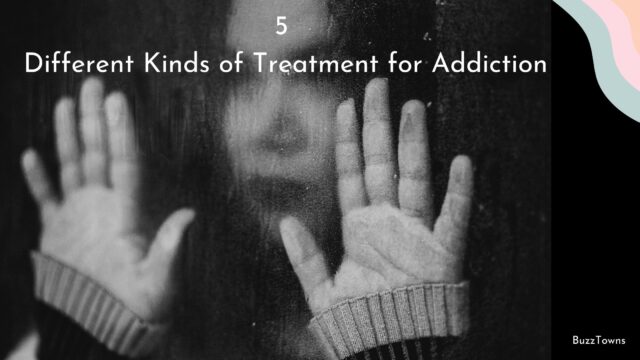Addiction is a class of disorders that cause mental and physical damage. Many treatments are available for addiction, but the best option depends on the individual’s situation. If you or a loved one is struggling with addiction, you may wonder what treatment options or therapies you can go for to treat your addiction problems. If so, you have come to the right place. This blog post will explore options for treating addiction problems and help you decide which one might be best.
Inpatient Or Residential Treatment:
One of the options is inpatient or residential treatment. This means you would stay overnight at a facility and receive treatment there. The average length of an inpatient program is 30 days, with some programs going as long as 90 days. These programs are generally costly, but many people feel it is worth it, considering the effective results of the programs.
Inpatient treatment is usually recommended for people with severe addiction problems who may need help dealing with other issues, such as mental health problems. You will not be allowed to stay at home during this type of treatment, although you might be allowed some phone calls and visits from family members. Furthermore, you may visit resources like serenityatsummit.com if you want a comprehensive approach to recovery and personalized treatment plans.
Detoxification:
Some inpatient programs also offer the detoxification method. This means the drug is flushed out of your body so that you can get used to exist without it. Detoxification is often done with medications meant to reduce cravings and help you through withdrawal. If someone is addicted to more than one type of drug, physicians may prescribe multiple medications for each type of drug to reduce its reactions and withdrawal symptoms.
Electronic devices such as NSS-2 Bridge can also reduce withdrawal symptoms. NSS-2 Bridge is placed behind the ear. It generates electrical pulses that trigger nerve cells in the body that might relieve opiate withdrawal symptoms.
Some people choose not to go for detoxification because they don’t have enough confidence in its results, but it is better to get clean from all drugs before starting treatment so that your body can heal itself fully.
Counseling And Behavioral Therapies:
Following detoxification, counseling and behavioral therapies are the most common treatment. Therapies might involve multiple discussion sessions that can be one-on-one or in groups depending on the patient’s condition. The followings are the most common therapies:
- Cognitive behavioral therapy (CBT): CBT helps people identify and change their thinking process associated with substance use addiction. CBT is valuable because it can target multiple addiction types, such as drug or alcohol addiction.
- Rational Emotive Behavior Therapy (REBT): REBT helps you identify negative thoughts in your mind and gives you multiple ways that you can opt to overcome the feelings of self-defeat.The primary goal of REBT is realizing the power of rational thinking present in an individual.
Motivational incentives and motivational interviewing can also be used to change and adjust an individual’s behavior.
Outpatient Treatment:
- Individual therapy: It involves meeting with a counselor or therapist regularly (usually once a week or once a month) and discussing issues that may be related to your addiction. This type of treatment is often recommended for people with some mental health problems besides their addiction, such as depression or anxiety disorder.
- Group therapy involves meeting with other addicts and going through the recovery process together. A therapist or counselor usually leads these meetings, but they can also be peer-led (meaning led by someone who has been through the program before). Peer-led groups are often more informal and allow people to talk about things that are happening in their lives outside of treatment. In some cases, peer-led groups can be very helpful because they allow you to see how others have dealt with similar situations.
Medications:
Along with counseling and behavioral therapies, medications play an essential role in recovering from addictive substances. Different types of medications for a specific timeframe can be used depending on the severity of addiction and its complications.
For example, some medicines can reduce withdrawal symptoms, some can improve mood, and others may help reduce drug cravings. FDA approved a drug called Lofexidine for the treatment of opioid addiction. It works by reducing withdrawal symptoms and cravings.
Addiction to some substances may require specific medications. Those suffering from alcohol addiction can take the following medications under the prescription of a registered medical practitioner:
- Naltrexone – It blocks receptors for opioids in the brain that produce a relaxing effect.
- Antabuse – It is also known as Disulfiram. It produces ethanol sensitivity in the body.
- Campral – Acamprosate or Campral restores the brain’s production of neurotransmitters.
Conclusion
Substance-related disorders are complex and chronic that require special care. The severity of the addiction and the type of the drug will dictate the duration and the time of the treatment. If you or your loved one is struggling with any addictive disorder, don’t hesitate to talk to a medical practitioner.









